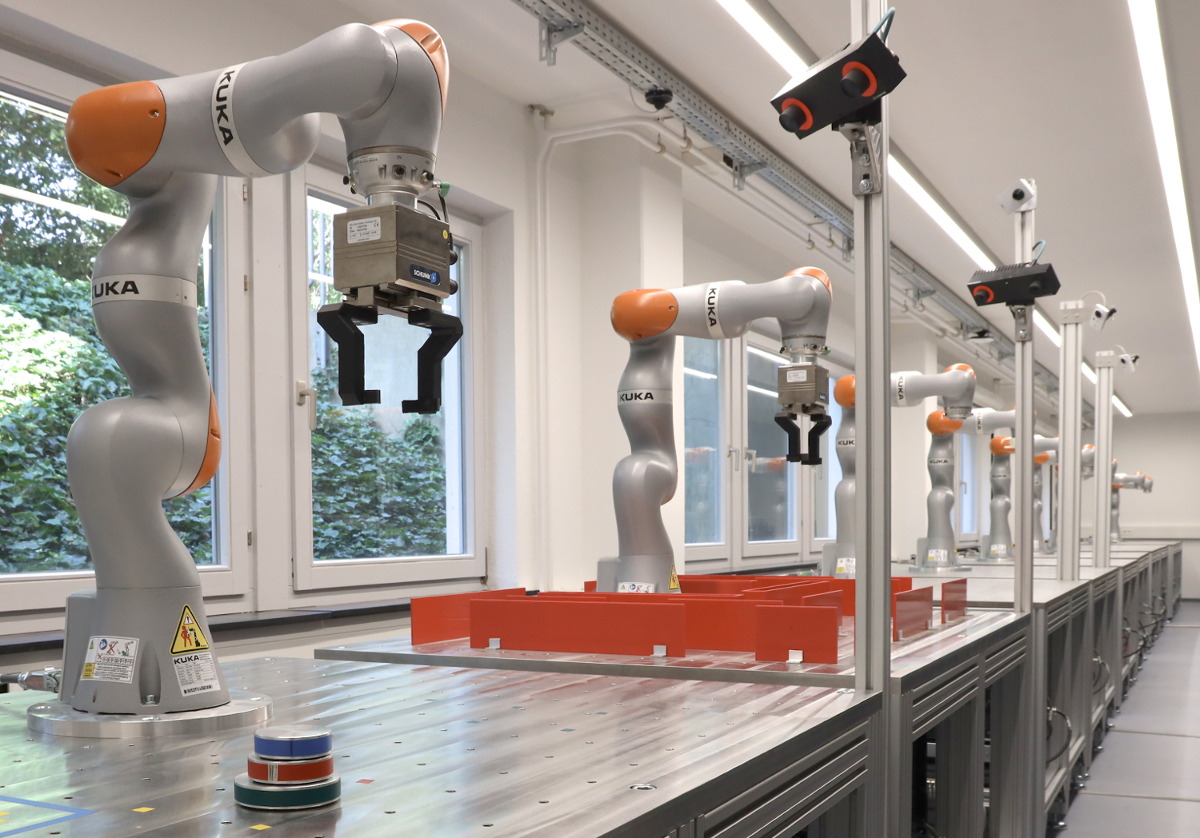The KUKA Robot Learning Lab at KIT is a remotely accessible robotics lab that is currently developed at IPR. It allows students and researchers to access the robots in the lab over the Internet from all over the world and to run their own projects on the robots.

The lab gives students the unique opportunity to run their code on a state-of-the-art industrial robots which are usually not available to them. In the same way, many less privileged researchers around the globe lack access to robotic hardware due to the high costs and need to resort to simulation. However, current simulation frameworks do not sufficiently reflect real-world behavior, especially when manipulating objects or emulating sensors. So for students, the lab is a unique and exciting way to learn the foundations of robotics and to gain experience with robotic hardware. And for researchers, the lab provides a development platform that allows them to transfer projects from simulation to the real world.
The lab has reached its final state with ten robot cells being deployed, each equipped with a KUKA LBR iiwa robot with force/torque sensing capabilities, a Roboception stereo camera as 3D sensor, a SCHUNK gripper, and a webcam. The robots, stereo cameras and grippers are graciously provided by their respective manufacturer. From 10 robot cells, 4 are already fully operational and tested on demo projects. The Robot Learning Lab is hosted in a new lab space that was specifically designed for it from 4 former laboratory rooms being merged into a single one.
Besides videos from the webcams, users also get logs and data collected during experiments. The goal is to provide the same development experience and data access as if users would sit right next to the robots. While the aim is to give users as much freedom as possible when controlling the robots, safety will still be ensured. With the addition of a fully automated and efficient processing pipeline for experiments, the robots will be available almost around the clock. This makes the lab suitable for massive open online courses (MOOCs) and Crowd Research with hundreds of participants.
With competitions and challenging projects, the transition to Crowd Research can be accomplished. Crowd Research has the goal to achieve new scientific breakthroughs by large-scale collaboration of researchers from different fields and backgrounds. Assuming a large group of participants, the likelihood is high that there are a few researchers with a great solution for the scientific problem at hand. And others can immediately start to build upon it.
The Robot Learning Lab also specifically facilitates research in an emerging field: the application of data-driven methods in robotics. The lab allows for automated data collection at scale when running experiments. And due to the high level of availability and various safety measures, it is a perfect fit for fully automated training of neural networks outside of simulation, e.g. for the use in robot control.
Once the lab is fully operational, live streams will be provided that show the busy robots moving among the different experimental setups in the lab.
